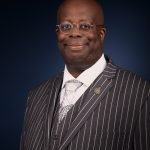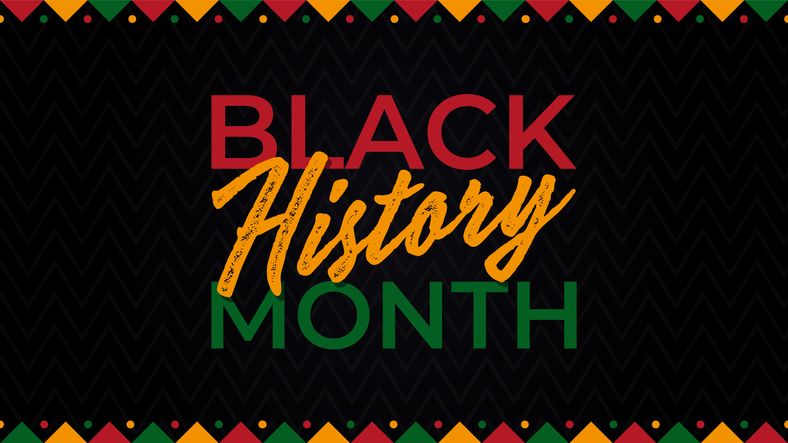By Chad Dion Lassiter, MSW
My question this month is how well are we living up to our creed to bring the woes of the marginalized to the forefront of the public’s attention?
The year started, as most years do, with fireworks and a steely resolve to tackle our personal woes and a promise to do better. Eat healthier, drink less, and exercise more.
A few weeks later we commemorated Dr. Martin Luther King Jr.’s birthday by reflecting on the social justice principles he espoused to cure our nation’s most intractable woes.
Now it’s February and we are celebrating African American History month.
Each year this is an opportunity to recall what a person can accomplish despite the most oppressive conditions. “… it is essential that we take time to celebrate the immeasurable contributions of Black Americans, honor the legacies and achievements of generations past, reckon with centuries of injustice, and confront those injustices that still fester today,” said President Joe Biden as he acknowledged Black History month 2022.
While these are all important yearly milestones, what does it mean if each year we are no further forward than the year before?
What does it mean on a personal level if our resolve uttered so confidently on January 1st has disappeared before month’s end. It is estimated that only eight percent of Americans will keep their resolutions throughout the year.
Or if our annual celebration of Dr. Martin Luther King, Jr.’s principles recall a dream but consistently neglects his fervent calls to end poverty.
“I’m always curious as to why many of us overlook the opening statements of his 1963 address. It’s as if we only hear one side of his speech. Why do we quickly repeat the words ‘I have a dream,’ and not the words ‘America has given the Negro people a bad check which has come back marked ‘insufficient funds.’ But we refuse to believe the bank of justice is bankrupt. We refuse to believe that there are insufficient funds in the great vaults of opportunity of this nation,’” said poet E. Ethelbert Miller.
African American History Month should remind us, as Viktor E. Frankl said, “man is capable of defying and braving even the worst conditions conceivable.”
But this memory should always be in conversation with Dr. Martin Luther King Jr. who challenged our country not just to celebrate the few who overcame, but to remember the unnamed masses who were devastated by brutal obstacles.
And all these conversations must begin with the hope that each new year can bring improvement.
However, improvement only happens within the context of accountability. Our civic resolution to hold America to its mission of equality, inclusion and diversity requires civic accountability.
And civic accountability was built into the DNA of our profession which was born 125 years ago this year at Columbia University. According to NASW’s own history page, social workers are responsible for bringing the nation’s social problems to the public’s attention and developing the solutions that will make a true difference.
We put this mission in peril if we fail to embrace accountability.
It is with that thought, I bring you this meditation on accountability from the website White Supremacy Culture:
Accountability is also a form of discernment around how to live into shared values or principles. Accountability is another word for support; we hold each other accountable by supporting each other to live into our collective values to the best of our ability, knowing that we will inevitably stumble, make mistakes, live into our conditioning in ways that cause harm. We will also be brave and kind and loving and compassionate. Principles help us focus beyond our own socialized confusions. Social justice values or principles are collectively created, grounded in the generational wisdom of elders, what we have learned from history, our experience, our understanding of the Creator and/or environment, and our desires for liberation. Another way of saying this is that if we are just accountable to people, we can get into trouble when the people we’re accountable to are acting out of confusion; this is where our principles help keep us grounded. If we are accountable only to principles, we tend to lose sight of the people that we are in relationship with, so our relationships can help us understand the nuance and complexity of honoring our principles.
So, I ask, how well are we living up to our creed to bring and to keep the woes of the marginalized to the forefront of the public’s attention?
About the Author

Chad Dion Lassiter is a nationally recognized expert in race relations. He has worked on race, peace, and poverty-related issues in the United States, Africa, Canada, Haiti, Israel, and Norway, and is frequently featured in the media providing commentary and solutions to racial issues. Lassiter is currently executive director of the Pennsylvania Human Relations Commission, where he has legislatively delegated authority to investigate filed complaints alleging the occurrence of unlawful discrimination in the areas of employment, housing and commercial property, education, and/or regarding public accommodations.




